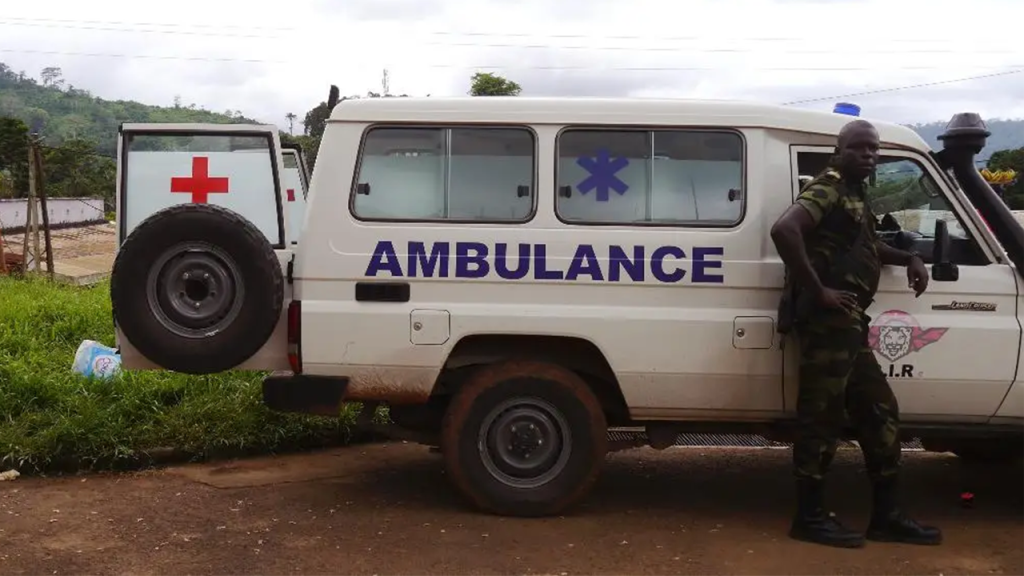From Minnesota Homes to Cameroonian Violence: The Alleged Separatist Leaders Facing Justice
In a striking case that bridges peaceful American suburbs with violent separatist conflict in Africa, two naturalized U.S. citizens have been charged with orchestrating a campaign of terror in their native Cameroon. Benedict Nwana Kuah, 51, and Pascal Kikishy Wongbi, 52, both Minnesota residents, were arrested last Friday on charges that paint a disturbing picture of leaders who allegedly directed bombings, kidnappings, and killings from the comfort of their American homes.
The men, according to federal prosecutors, held leadership positions in the Ambazonia Defense Forces (ADF), a separatist militia fighting to establish an independent state in Cameroon. Their indictment details how they allegedly leveraged their positions to raise funds through online campaigns with names like “The Takeover Fund” and “Operation 200AKs” – explicitly soliciting donations for weapons including AK-47 rifles and explosives. From their Minnesota residences, authorities claim they directed violent operations that targeted not only Cameroonian security forces but also civilians and government officials, aiming to terrorize the population and force the Cameroonian government to recognize their separatist movement’s legitimacy.
The charges against Kuah and Wongbi span several years of alleged activity beginning in 2017, when they reportedly began transferring thousands of dollars to co-conspirators in Cameroon for weapons purchases. The indictment details specific incidents, including the 2022 kidnapping of a government official that was showcased in propaganda videos. Perhaps most disturbing are the allegations surrounding Kuah’s involvement in planning a 2023 IED attack targeting a regional governor and financing a bombing at the Mount Cameroon Race for Hope that injured 19 people. The violence allegedly continued into 2024, with Kuah accused of approving both funding and an operational plan for a bombing at a Youth Day celebration – an attack that killed a 15-year-old girl and injured dozens of other children.
“Operating from the comfort of their living rooms in Minnesota, these defendants caused violence and suffering half a world away,” said Joseph Thompson, acting U.S. Attorney for the District of Minnesota, in a powerful statement that encapsulates the jarring contrast between the defendants’ peaceful American existence and the violence they allegedly orchestrated. “They ordered kidnappings, bombings, and murders. Their crimes are an affront to both American law and basic human decency.” Matthew Galeotti, acting assistant attorney general of the DOJ’s Criminal Division, similarly condemned the defendants for using the United States as a base of operations to “cause death, terror, and suffering among innocent civilians.”
The case highlights complex questions about diaspora politics, the responsibilities of naturalized citizens, and how conflicts in distant homelands can continue to play out within American communities. The men now face a potential life sentence if convicted of the most serious charges, which include conspiracy to kill, kidnap, maim, and injure persons abroad; conspiracy to provide material support or resources; conspiracy to launder monetary instruments; and in Kuah’s case, additional charges of conspiracy to commit hostage-taking and conspiracy to use weapons of mass destruction outside the U.S. Their detention hearings are scheduled for September 10 and 11, when the court will determine whether they remain in custody during the legal proceedings.
The prosecution sends a clear message about America’s stance on transnational violence, with Thompson emphasizing that “Minnesota is not a launchpad” for overseas violence. While the conflict in Cameroon between Anglophone separatists and the central government has received limited attention in U.S. media, this case brings to light how global conflicts can have surprising connections to American communities. As the legal process unfolds, it will undoubtedly raise important questions about the responsibilities that come with American citizenship and the long reach of U.S. law enforcement when it comes to acts of violence orchestrated from American soil but carried out thousands of miles away.


